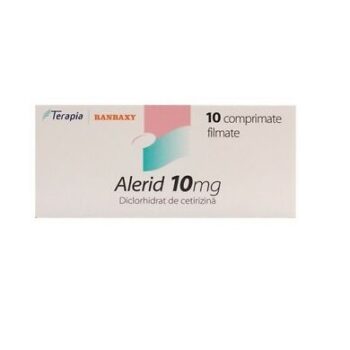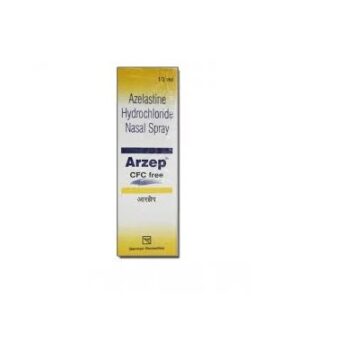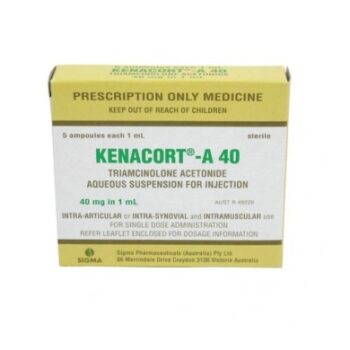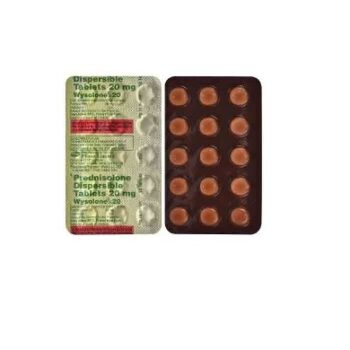Allergy
Showing 1–12 of 28 results
Allergy
Your body’s immune system may respond in an abnormal to any external trigger. Allergen is the external trigger. Then allergies occur. Such allergens are present in our surroundings. Yet usually do not incite any immune response in others. The body’s immune system generates antibodies against such allergens in a few people. It causes inflammation. It leads to many symptoms. These symptoms range from mild to severe ones.
Allergies are prevalent worldwide. Allergens cause it. These are dust, mites, mold, foods such as fish, nuts, and medications such as penicillin. Treatment of allergies takes place with antihistamine medications and steroids. Doctors use over-the-counter preparations to provide relief from allergic symptoms.
Causes
Allergy is a condition when your body reacts to one substance when it feels it is harmful. Your immune system will respond when you come into contact with a harmless substance.
Common causes
- Allergens: Pollen, animal dander, dust, etc
- Medicines: A few antibiotics
- Foods: Some food will cause allergies, like milk, nuts, peanuts, eggs, fish, milk, soy, etc.
- Substance: A few stuff, such as latex, will give you skin allergies.
Symptoms
There are different types of allergies. Each of these allergies occurs with other symptoms. These are:
Skin allergy: It is also called eczema or atopic dermatitis. It can cause symptoms such as:
- Itchiness, redness, and pain in the parts of the skin that get exposed to the allergen.
- It may cause the skin to become flaky and peel off.
Allergic conjunctivitis:
Any allergen may enter your eye. It may irritate the conjunctival lining. It may cause these symptoms:
- Puffy eyes
- Redness in the eyes
- Excessive watering of the eyes
- Changes in vision
Food allergy: Eating foods can cause allergy along with symptoms like:
- Puffing of the face
- Tingling in the mouth
- Swelling of the lips and tongue
- Difficulty breathing
- Itching all over the body
- It can cause anaphylaxis in severe cases
Insect allergy: The sting of an insect can cause symptoms such as:
- Tightness in chest and wheezing
- Pain and swelling at the site
- Reddening at the site
- Breathing difficulty
- It can cause anaphylaxis in severe cases
Respiratory allergy: Asthma and allergic rhinitis are types of respiratory allergies. Symptoms are:
- Coughing
- Wheezing
- Shortness of breath
- Runny nose
- Tightness in chest
Medicinal allergy: Some medications may trigger an allergy. It can cause symptoms such as:
- Skin rash and itching
- Cough
- Difficulty breathing
- Chest tightness
- Swollen face and body
- It can cause anaphylaxis in severe cases
Anaphylaxis: It is a severe reaction to any allergy. It can be life-threatening. The symptoms are:
- Loss of consciousness
- Severe drop in blood pressure
- Anaphylactic shock
- Nausea
- Weak pulse
- Extreme difficulty while breathing
- Skin rash
Prevention
You cannot prevent allergies on their own because they are hereditary. Yet you can avoid the harmful impacts that occur because of allergies. There is an effective way of preventing an allergic reaction. Avoid exposure to the allergen causing it.
It is vital first to understand and identify the trigger causing it. Once you recognize this agent, you must take every step to avoid allergen exposure. Some examples are:
- Dust allergy:
While cleaning an area containing excessive dust, use a face mask or tie a wet cloth over your mouth and nose.
- Food allergy:
Avoid foods causing allergies, even in small quantities.
- Medicine allergy:
Let your doctor know if you have ever had any allergic reactions to some medicine in the past. Thus your doctor will be able to change your treatment.
- Mold allergy:
Usually, molds grow in any dark, enclosed place. Such a place is devoid of sunlight. To prevent mold exposure, all areas in your home must get ventilated. They must receive a lot of natural sunlight.


















